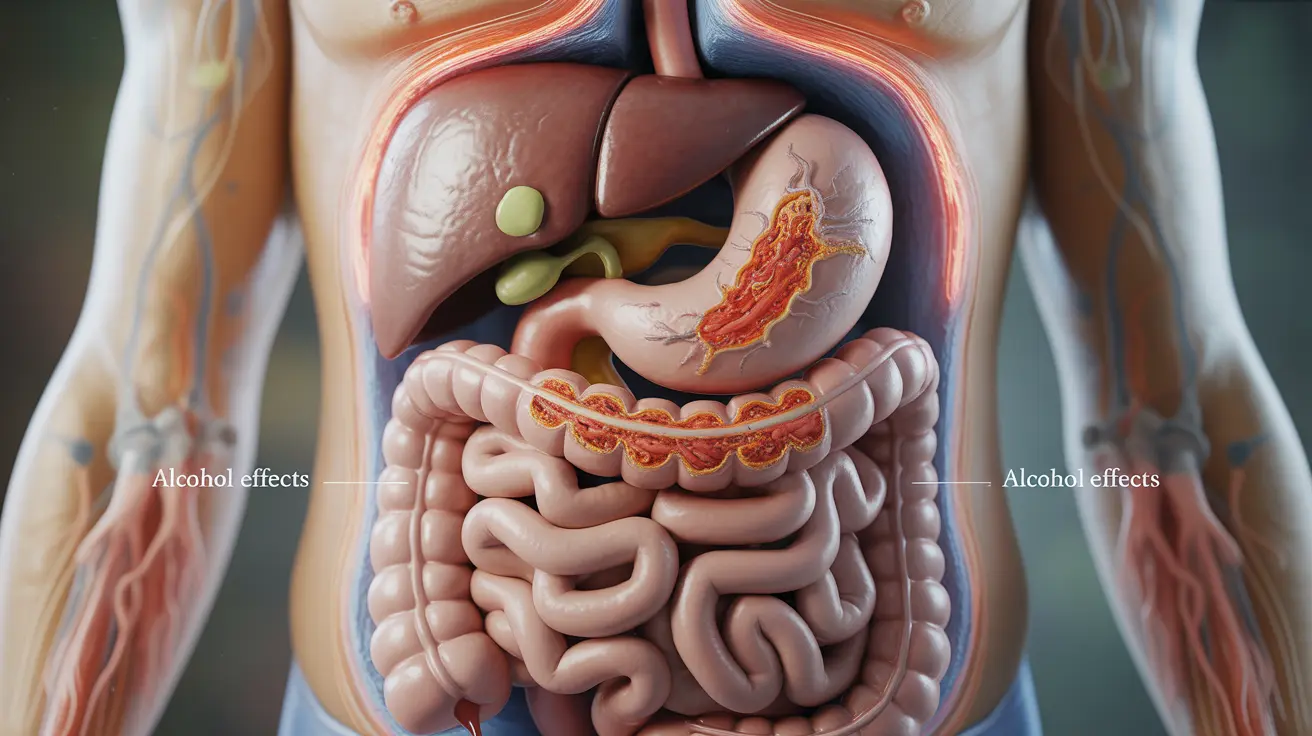Many people experience digestive issues after consuming alcohol, with diarrhea being a common complaint. Understanding the relationship between alcohol consumption and digestive health is crucial for making informed decisions about drinking habits and managing potential complications.
This comprehensive guide explores how alcohol affects your digestive system, which drinks are most likely to cause problems, and what you can do to prevent or manage alcohol-related diarrhea.
How Alcohol Disrupts Digestive Function
Alcohol can significantly impact your digestive system in several ways. It irritates the intestinal lining and alters how your body processes nutrients and regulates fluid balance. The substance also affects the muscles controlling bowel movements, potentially leading to increased gut motility and diarrhea.
Additionally, alcohol can disrupt the balance of beneficial bacteria in your gut microbiome, which plays a crucial role in maintaining digestive health and regular bowel movements.
Different Alcoholic Beverages and Their Digestive Impact
Not all alcoholic beverages affect your digestive system equally. Here's how different types of alcohol can impact your gut:
Beer and Carbonated Drinks
Beer and other carbonated alcoholic beverages can cause additional digestive distress due to their carbonation and high sugar content. The combination of alcohol and carbonation may lead to increased gas production and faster gut transit time.
Wine and Spirits
Red wine contains compounds called tannins that may irritate sensitive digestive systems. Meanwhile, spirits have higher alcohol concentrations, which can cause more severe irritation to the digestive tract.
Mixed Drinks
Cocktails and mixed drinks often contain sugar, artificial sweeteners, and other additives that can further contribute to digestive issues, especially in combination with alcohol.
Risk Factors and Underlying Conditions
Certain factors can make you more susceptible to alcohol-induced diarrhea:
- Pre-existing digestive conditions (IBS, Crohn's disease, celiac disease)
- Alcohol sensitivity or intolerance
- Medications that interact with alcohol
- Poor eating habits while drinking
- Dehydration
Prevention Strategies
To reduce your risk of experiencing alcohol-related diarrhea, consider these preventive measures:
- Eat a substantial meal before drinking
- Stay hydrated by alternating alcoholic drinks with water
- Choose lower-alcohol beverages
- Avoid mixing different types of alcohol
- Pay attention to personal triggers and avoid problematic drinks
When to Seek Medical Help
While occasional alcohol-related diarrhea might not be serious, certain symptoms warrant medical attention:
- Severe or persistent diarrhea lasting more than 48 hours
- Blood in stool
- Severe abdominal pain
- Signs of dehydration
- Fever above 102°F (39°C)
Frequently Asked Questions
How does alcohol cause diarrhea and affect the digestive system?
Alcohol causes diarrhea by irritating the intestinal lining, increasing gut motility, and disrupting the gut microbiome. It also affects how your body processes and absorbs nutrients, leading to changes in bowel movements.
Are some types of alcoholic drinks more likely to cause diarrhea than others?
Yes, drinks with higher alcohol content, carbonation, or added sugars are more likely to cause diarrhea. Beer can be particularly problematic due to its carbonation, while spirits may cause issues due to their high alcohol concentration.
Why am I more prone to diarrhea after drinking alcohol if I have a digestive condition like IBS or Crohn's disease?
People with digestive conditions already have sensitive or inflamed digestive systems. Alcohol can exacerbate these conditions by further irritating the gut lining and triggering inflammation, leading to more severe symptoms.
How can I prevent diarrhea after drinking alcohol?
Prevent alcohol-related diarrhea by eating before drinking, staying hydrated, choosing lower-alcohol options, and avoiding known trigger drinks. Limiting overall alcohol consumption is also effective.
When should I see a doctor for diarrhea caused by alcohol consumption?
Seek medical attention if you experience severe or persistent diarrhea, bloody stools, severe abdominal pain, signs of dehydration, or high fever. These symptoms may indicate a more serious condition requiring professional evaluation.




